With 2nd edition TurfTech grows into meeting place for European groundsmen |
|
|
|
|
 |
| 216 sec |
On 1 and 2 September, the second edition of TurfTech took place in the stadium of FC Basel. Where the first gathering in Genk already made a strong impression, Switzerland made it clear that the conference is quickly developing into a fixed meeting place for groundsmen and industry suppliers. More than 350 participants from all over Europe attended presentations, but networking was the main focus. The organizer was again the Limburg-based Stogger, a young startup in grow lights. Basel was not chosen by coincidence: after Genk, it is the second stadium fully equipped with a set of grow lights from Stogger.
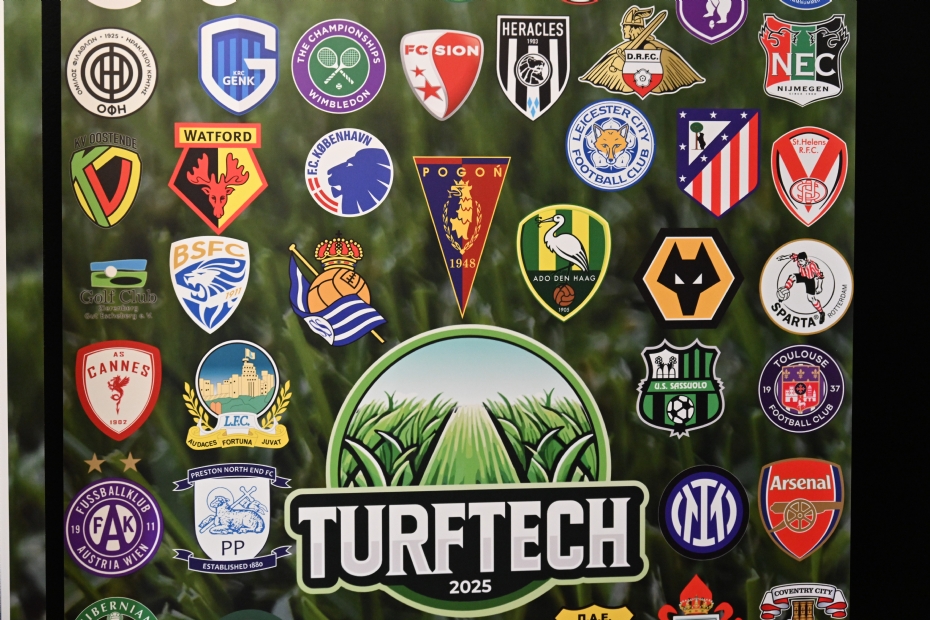 |
The two-day program offered lectures in two halls, alternated with demonstrations, but above all provided plenty of space to network and build friendships. According to the organization, representatives of some ninety professional clubs were present, including many from the Netherlands, Belgium and England. German and Swiss clubs also joined. As already became clear in Genk, TurfTech is not only about knowledge transfer. The real value lies in making new connections and sharing experiences. Your editor attended as many lectures as possible. Unfortunately, that was not always possible, as two halls with lectures were running simultaneously.
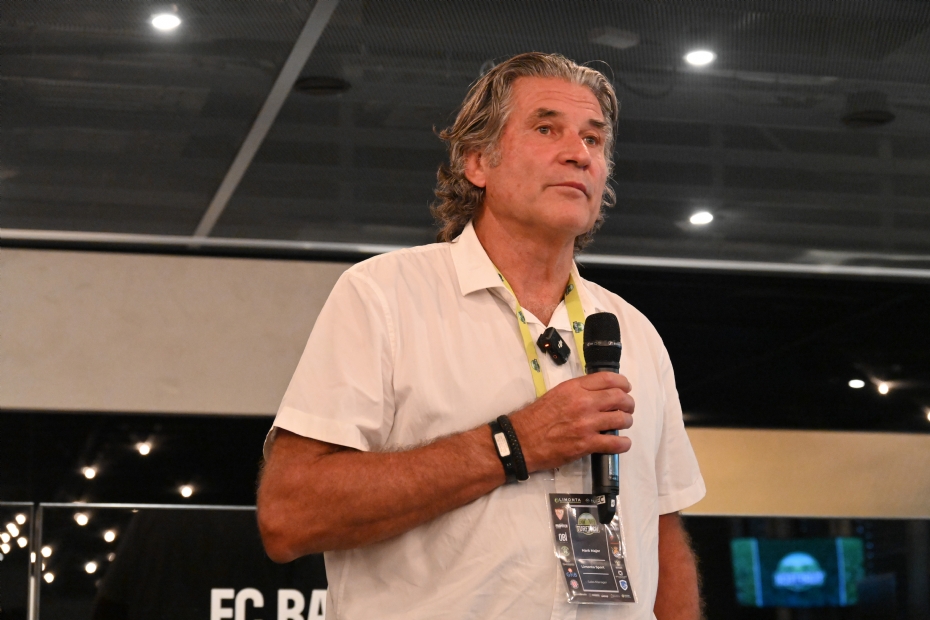 | | Mark Major (Limonta/ Mixto) |
|
|
Mark Major (Limonta/Mixto) - from San Siro to hybrid innovation
The lecture program opened with Mark Major from Limonta (now part of TenCate), known for the hybrid system Mixto. Major outlined how the Italian family business started in the 1980s with only three employees and has since grown into an international player with more than one thousand employees. In collaboration with Limonta, iconic stadiums such as San Siro and the then Juventus stadium were renovated. That is where the first experiments with hybrid grass took place. Major emphasized the importance of well-thought-out drainage and a stable construction. By also carrying out maintenance themselves on many fields, Limonta receives extensive feedback from groundsmen, which is used to further improve the systems.
|
|
Eddy van Endert: KRC Genk, 'I do not need the best groundsman, I need the best team'
| |
|
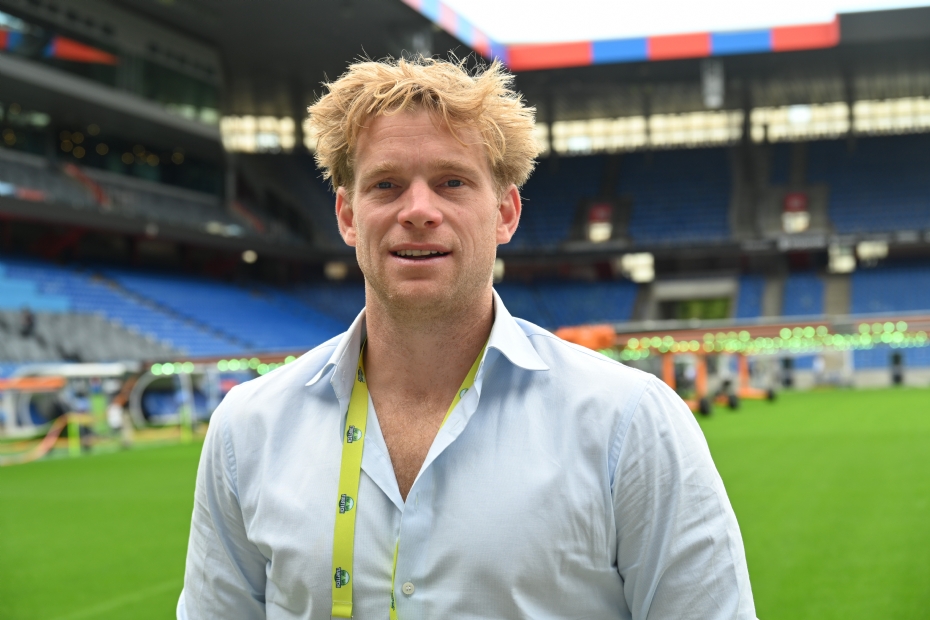 | | Eddy van Endert, KRC Genk |
|
|
Eddy van Endert (KRC Genk) - from executor to full-fledged manager
Eddy van Endert, head groundsman of KRC Genk, explained how his role has changed in recent years. Where he initially had little say in budgets and maintenance choices, he is now a full conversation partner for the board and technical management. He built that trust step by step through clear communication, supported by data and results. His core message: success depends on the team. 'I do not need the best groundsman, I need the best team,' said Van Endert. For Genk, the pitches have now become a strategic asset: they influence playing style, injury prevention and even the transfer value of players.
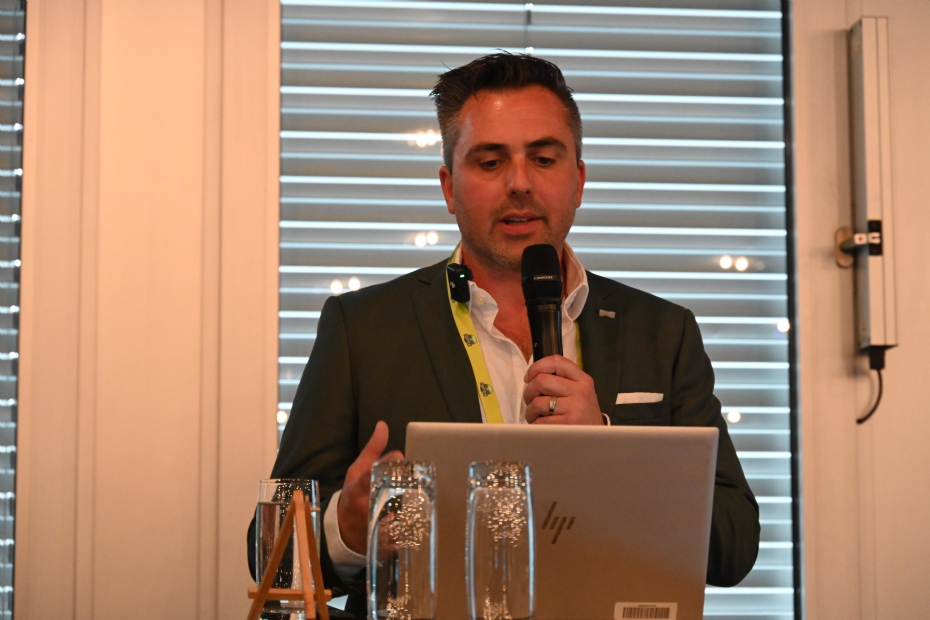 | | Jon Hesen (Tarkett) |
|
|
Jon Hesen (Tarkett/Grassmaster) - new fiber without plastic
On behalf of Tarkett, Jon Hesen spoke about the future of hybrid systems. Grassmaster was the market leader for many years, but now several players are active with stitching hybrid pitches. According to Hesen, this calls for continuous innovation. The main news from his presentation was the introduction of a new patented hybrid system that uses fibers made from natural materials. With this, Tarkett aims to tackle the waste problem of end-of-life plastic fibers. The system is already being tested in pilot projects, including with several professional clubs in the Netherlands. Hesen also demonstrated how the new generation of electric stitch machines work lighter and more environmentally friendly.
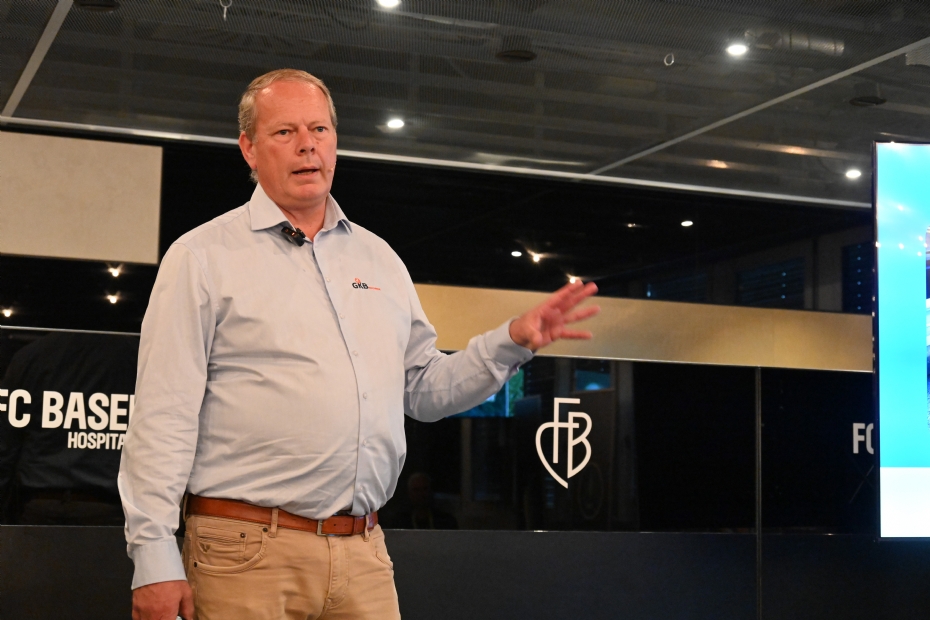 | | Jan Willem Kraaijveld (GKB) |
|
|
Jan-Willem Kraaijeveld (GKB Machines) - maintenance as key
Another Dutch contribution came from Jan-Willem Kraaijeveld of GKB Machines. The family business from Barendrecht has been developing maintenance machines for sports fields for decades. Kraaijeveld explained that proper maintenance is crucial, especially for hybrid fields. He presented the Combinator, which can remove the top layer, and the Renovator, which opens and overseeds fields. Both machines are developed together with contractors and are directly deployed on practical projects. GKB produces energy-neutral and emphasizes sustainability in all business processes.
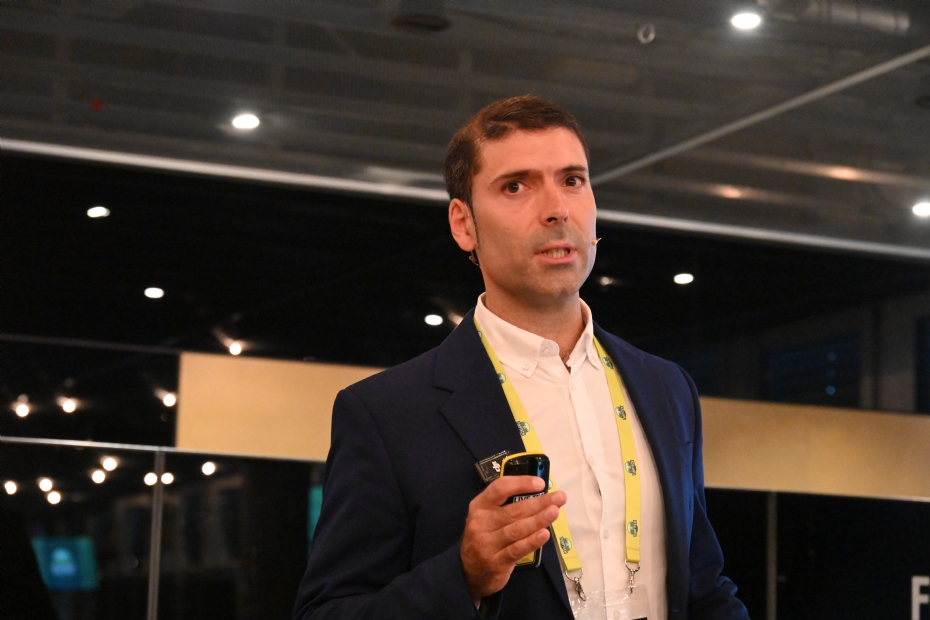 | | Iker Orue Alda (Real Sociedad) |
|
|
Iker Orue Alda (Real Sociedad) - playing more important than grass
Spanish agronomist Iker Orue Alda has been head grounds manager at Real Sociedad since 2022. He showed how the climatic conditions in the Basque Country differ greatly from the common image of Spain: lots of rain, high humidity and relatively little sun. This creates challenges such as fungal diseases, heat stress and heavy training pressure on limited fields. Orue Alda emphasized that his goal is not 'beautiful grass,' but an optimal playing surface for the footballers. With limited budgets, he works this out through economic analyses and data collection, which he uses to convince the board of investments.
|
|
It is not about the nicest turf, but about a good playing surface for footballers
| |
|
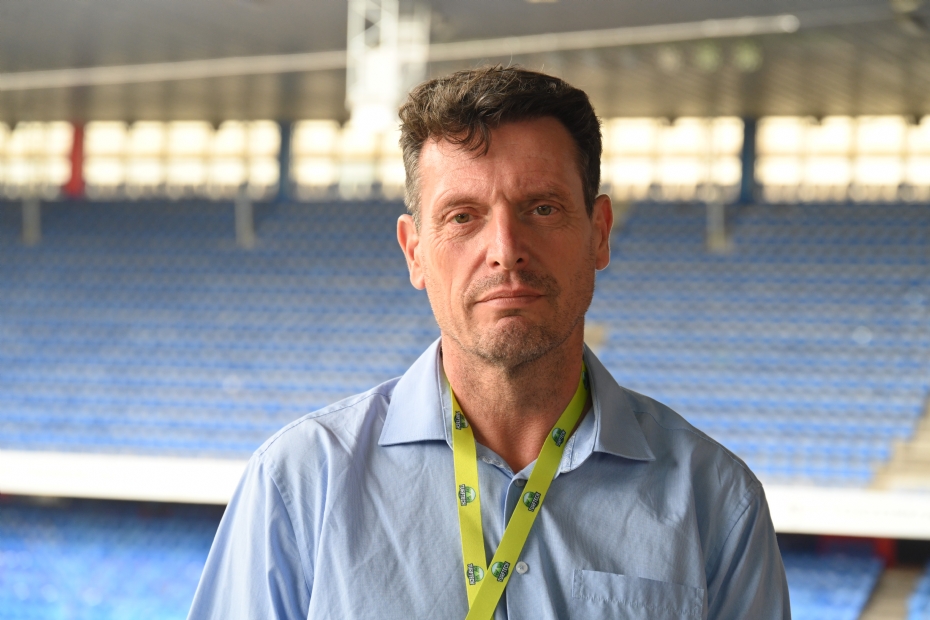 | | David Roberts (Istma) |
|
|
David Roberts - lessons from England and beyond
Finally, the presentation of David Roberts, former head groundsman of Southampton and Liverpool, now working as a consultant. Roberts guided the audience through his experiences at major clubs and international projects, including Liverpool's new training complex that he developed together with Jürgen Klopp. FIFA projects and international assignments also gave him insight into how challenges differ by country. Roberts emphasized the importance of infrastructure and drainage, but above all of communication with the technical staff. His message: the basic principles of good pitch management are the same everywhere, but the context determines which choices work. Roberts is one of the founders of ISTMA, the International Sports Turf Manager Association.
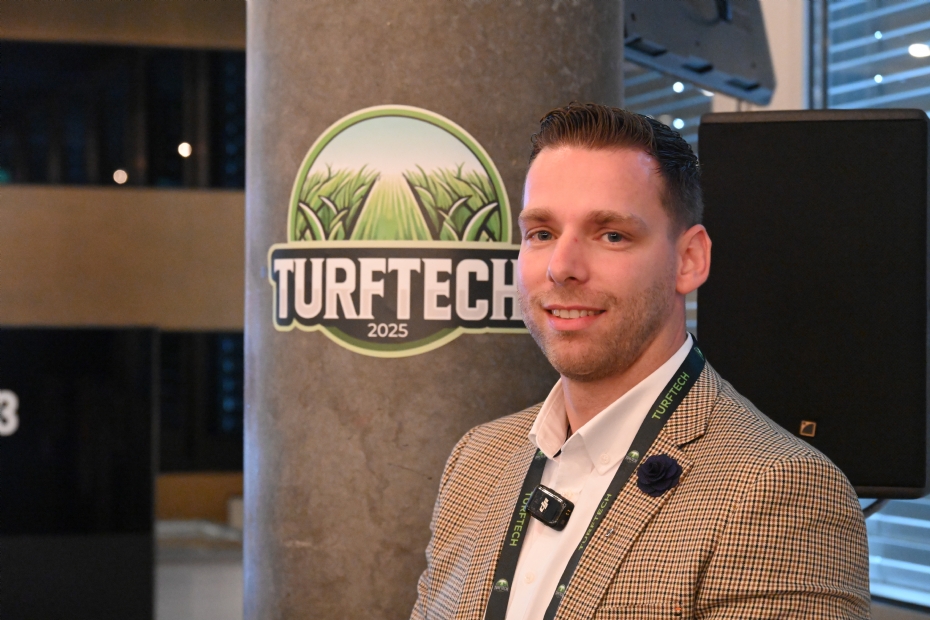 | | Florian Mans (Stogger and TurfTech organizer) |
|
|
TurfTech as lasting meeting place
With lectures from both international companies and experienced groundsmen, TurfTech once again offered a broad mix of perspectives. The common thread was clear: cooperation, professionalization and sustainability. That Basel served as the location also underlined the role of Stogger as organizer and supplier of grow lights. For the participants, it was above all a chance to exchange experiences and make new contacts. With that, TurfTech confirms itself as a conference that in a short time has grown into a permanent meeting place for the international grass and sports field community.
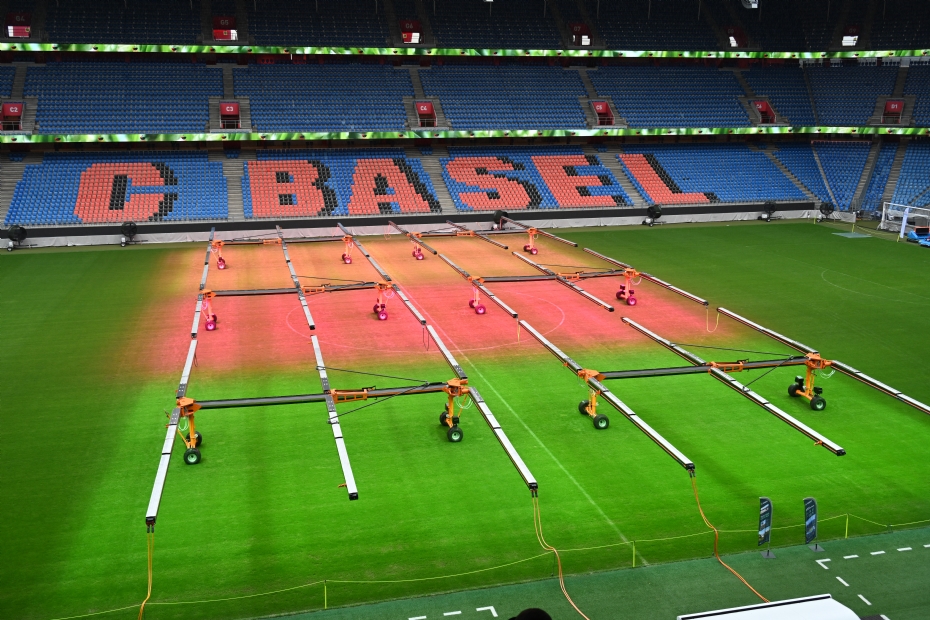 | | Stogger lamps on field of FC Basel |
|
|
Stogger
Stogger is a young startup from Limburg that develops grow lights for football stadiums. The company aims to contribute to better and more sustainable grass growth with smart lighting. Whereas the market was previously dominated by large international players, Stogger positions itself with compact, efficient systems that are fully developed and built in-house. In 2024, the stadium of KRC Genk was the first to be fully equipped with a set of Stogger lamps. FC Basel followed this year as the second.
|
This article was first published on 3 September 2025 on the website
of Fieldmanager.
| LOG IN
with your email address to respond.
|
|
|
| There are no comments yet. |
|